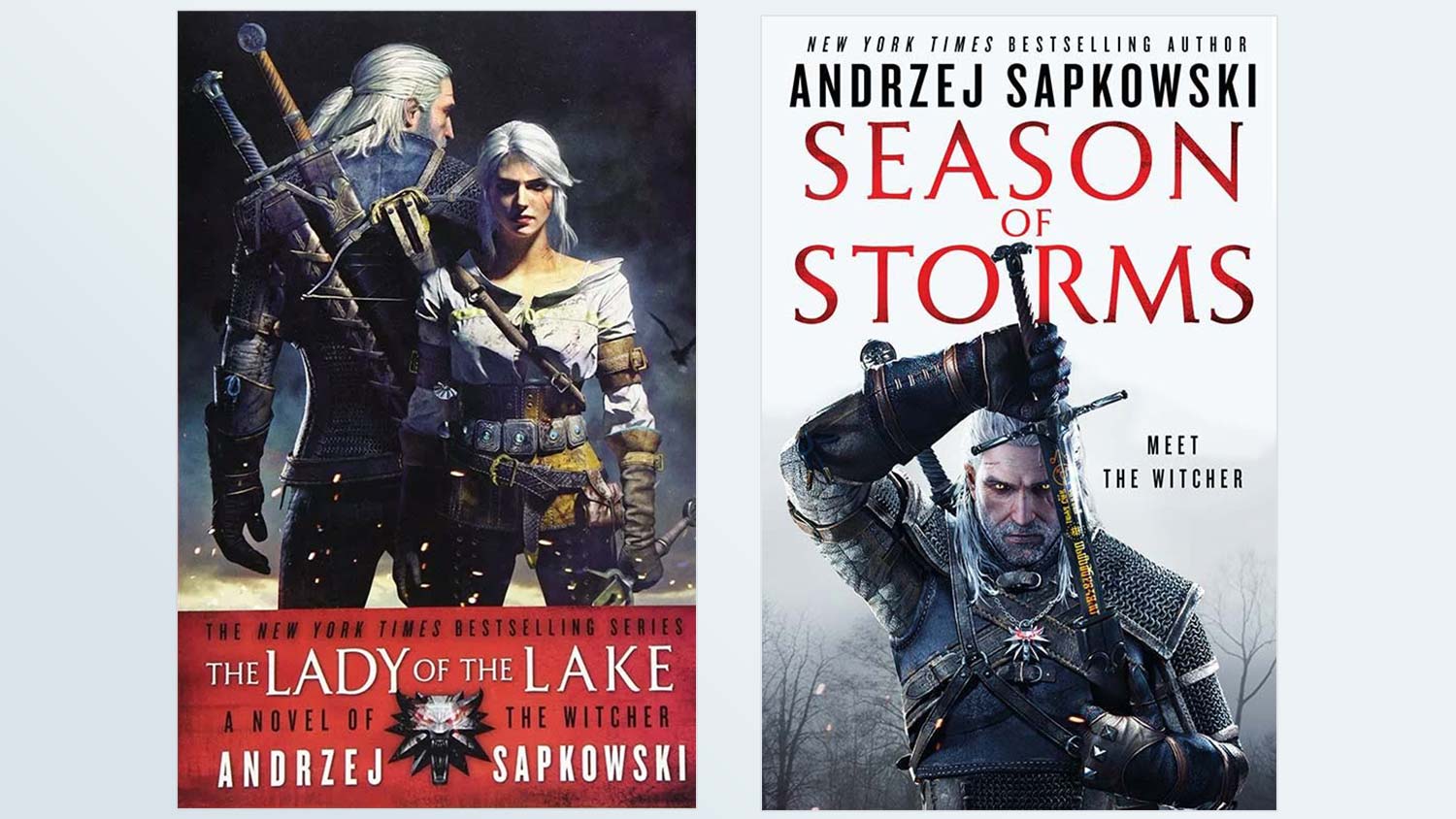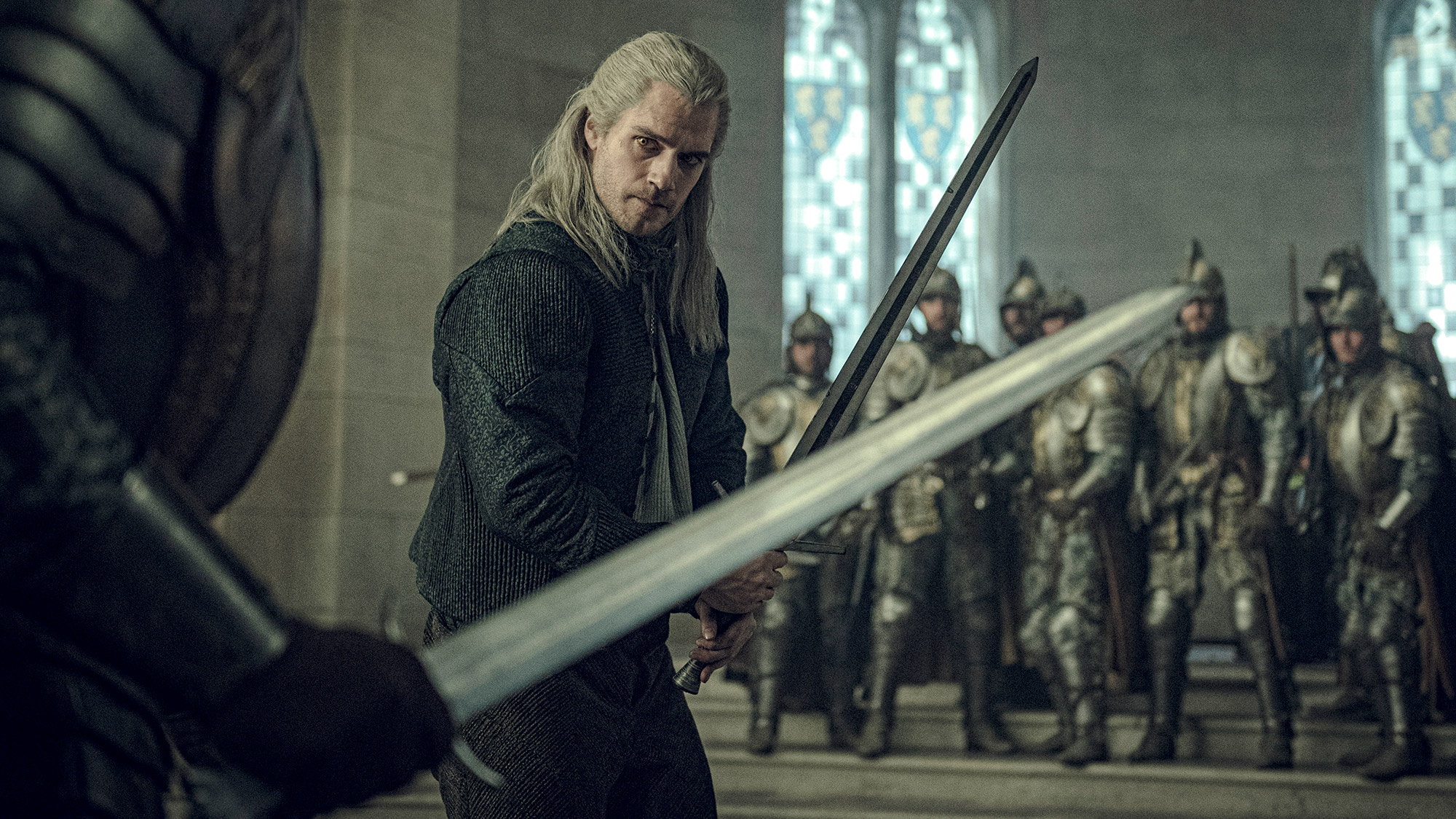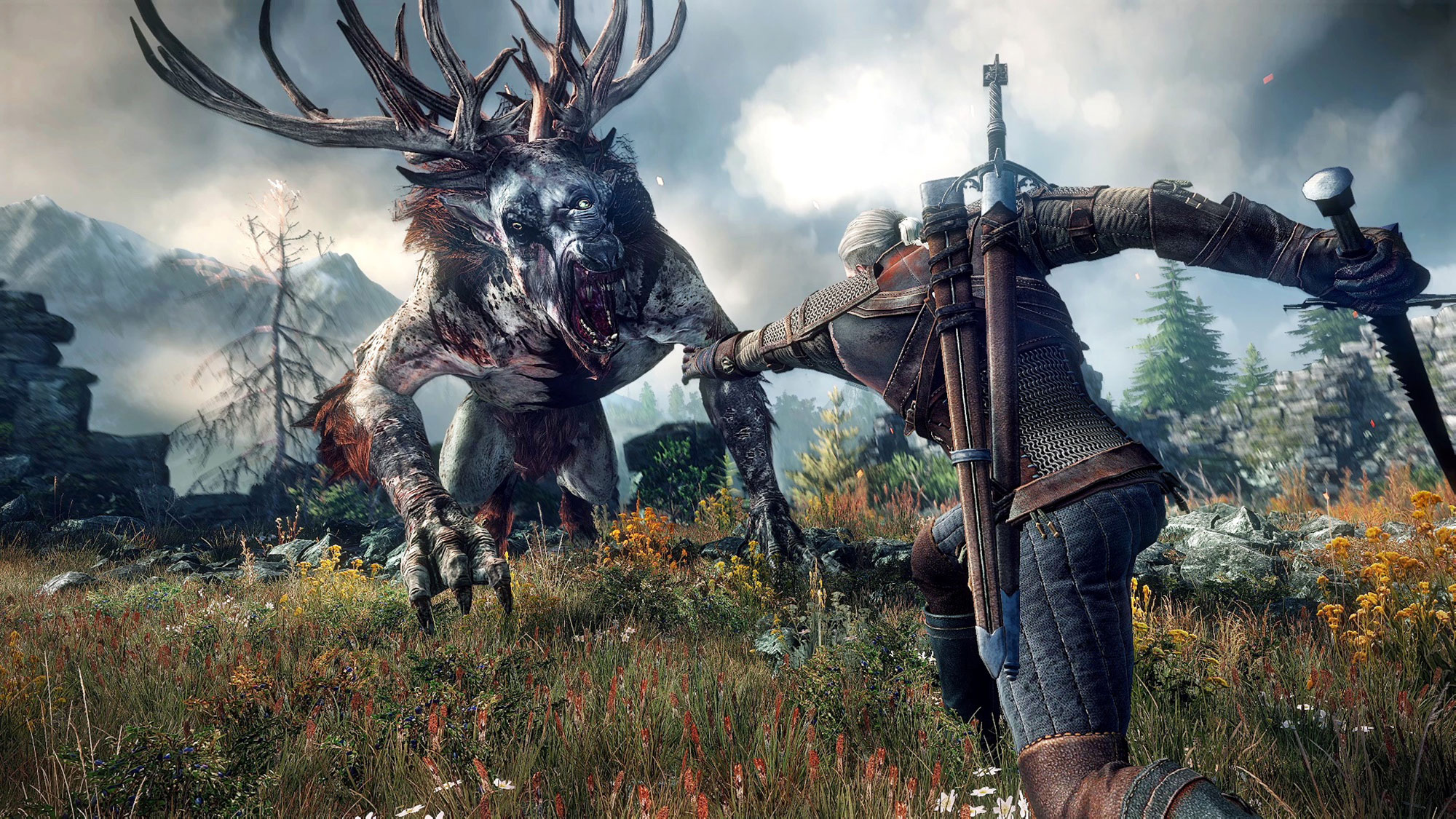How to read The Witcher books in order
The Witcher books tell a riveting dark fantasy story

The Witcher books are really, really good. I know that because I've read them all — and because I've been telling you this for years. However, let's let bygones be bygones and start fresh.
The Witcher is a best-selling video game franchise. It's a hit Netflix series. But before any of that happened, it was a seven-book series by Polish fantasy novelist Andrzej Sapkowski. The books follow Geralt of Rivia: a white-haired, monster-hunting mutant known as a Witcher. At first, Geralt roams the Northern Kingdoms, slaying beasts and earning coin. But as the books progress, he finds himself wrapped up in affairs of state, ancient magicks and even the workings of destiny itself.
- The Witcher season 2: Everything we know so far
- The best PC games to play now
Whether you want to know the background for the video games, get a jump on the next season of the TV show or simply immerse yourself in a great fantasy novel, The Witcher books are well worth a read. Here's where to start, and how to read The Witcher books in order.
The Witcher books in order
Generally speaking, the best way to read The Witcher series is simply to follow the order in which they were published. I've given the U.S. release dates and publishers for simplicity, but bear in mind that all of these books came out much earlier in Poland, and somewhat earlier in the rest of Europe.
1. "The Last Wish" (Hachette, 2008)
2. "Sword of Destiny" (Hachette, 2015)
3. "Blood of Elves" (Hachette, 2009)
Sign up to get the BEST of Tom's Guide direct to your inbox.
Get instant access to breaking news, the hottest reviews, great deals and helpful tips.
4. "The Time of Contempt" (Hachette, 2013)
5. "Baptism of Fire" (Hachette, 2014)
6. "The Tower of Swallows" (Hachette, 2016)
7. '“The Lady of the Lake" (Hachette, 2017)
8. "Season of Storms" (Hachette, 2018”)
Briefly, the first seven books are all chronologically contiguous. Geralt's adventures begin with a series of stand-alone adventures, as he travels from town to town, hunting monsters and occasionally dodging local politicians. But around the end of the second book, things start to shift, as Geralt claims responsibility for a royal child named Ciri. Ciri's adventures, and Geralt's quest to keep her safe, are mainly the story of the rest of the series.
The first two books are short story collections, while the latter five are novels, but they all fit together to tell a complete narrative in a linear fashion. Don't skip any; they're all good, and they all contain valuable plot information.
The only wrinkle in the formula is "Season of Storms." While the novel is technically the eighth book in The Witcher series, it doesn't take place last in the chronology. In fact, most of the action in the book occurs between "The Last Wish" and "Sword of Destiny." Does that mean that "Season of Storms" should be your second book? Well, maybe.
You see, while "Season of Storms" bridges the gap between the first two books, it also has a framing story, which takes place hundreds of years later. The characters for this framing story first show up in "The Lady of the Lake." I'm not sure any of this material spoils the story, but it might leave readers scratching their heads until five books later.
I recommend reading "Season of Storms" last, but to each his own.
Does the TV show follow The Witcher books?
For the most part, the TV show is a direct adaptation of the books — although the time scale is a little out of whack. Most fans know by now that the first season of The Witcher told three stories simultaneously, although it turned out that the three stories were not all happening at once. In the books, the timeline is much easier to follow, as it's linear.

Season 1 was an adaptation of certain short stories from both "The Last Wish" and "Sword of Destiny." The showrunners also made up and added a lot of material, however, particularly about Yennefer's backstory.
Since Netflix doesn't like keeping shows on the air for more than three or four seasons, I would imagine that each new season will mix and match content from various novels. If you want to get ready for Season 2 without reading too far ahead, I'd stick with "Blood of Elves" and "The Time of Contempt" (after reading the two short story collections, of course).
Do the games follow The Witcher books?
Here's where things get interesting. While the Witcher video games pick up right where the books left off, are they the next chapters of the canonical story, or just entertaining "what-if" scenarios? Well, that depends on whom you ask.

Sapkowski himself has ambivalent feelings toward the games. He thinks they're well made, but aren't necessarily representative of his vision for the series. (It probably doesn't help that there was some bad blood between him and developer CD Projekt Red over licensing fees, which took until late 2019 to get ironed out.) On the other hand, the games follow the book lore extremely closely, and I didn't spot any major contradictions in the story. Some of the characters in the games look different than their literary counterparts, but that's liable to happen in any adaptation.
What to read outside of The Witcher books
Apart from the books and games, there are a few comic book series: "House of Glass," "Fox Children," "Curse of Crows" and "Of Flesh and Flame," all published by Dark Horse. "Fox Children" is an adaptation of a chapter in "Season of Storms," but the rest are all original tales. None of them is necessary to understand the books; in fact, most of them are based on the video game series.
So, there you have it. There are eight Witcher books, and you can buy them all in hard-copy or ebook format. They range between 250 and 700 pages, depending on the book, so you've got a lot of reading ahead of you if you want to plow through the whole thing, start to finish. On the other hand, we've still got plenty of time until The Witcher Season 2 comes out, so you may as well get started.
Finally, on a personal note, my favorite short story was left out of the Netflix adaptation, so I'd encourage you to read "The Last Wish," if only to see how heartbreaking and funny the books can be. The story's called "A Grain of Truth," and I won't spoil what makes it so good.
Marshall Honorof is a senior editor for Tom's Guide, overseeing the site's coverage of gaming hardware and software. He comes from a science writing background, having studied paleomammalogy, biological anthropology, and the history of science and technology. After hours, you can find him practicing taekwondo or doing deep dives on classic sci-fi.

